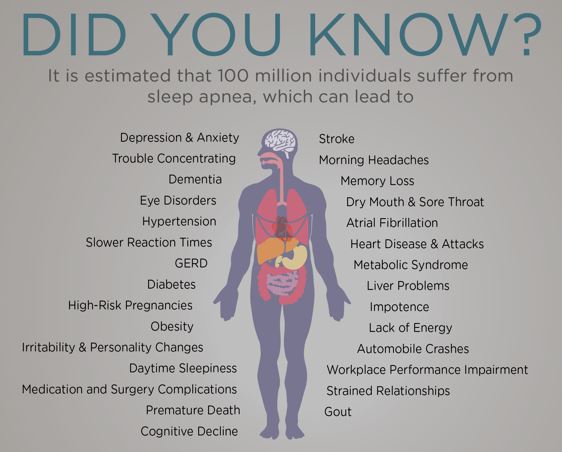New Year, New CPAP (or CPAP Alternative): Better Sleep Starts Now
New Year, New Sleep Goals
The New Year is the perfect time to reset habits, focus on health, and finally prioritize better sleep. For millions of people with obstructive sleep apnea (OSA), that often means starting—or restarting—treatment.
While CPAP therapy remains the gold standard for sleep apnea treatment, many patients struggle with CPAP intolerance due to mask discomfort, claustrophobia, noise, dryness, or difficulty sleeping through the night. If CPAP hasn’t worked for you, the good news is this: you still have effective options.
At Comprehensive Sleep Care Center, we specialize in personalized sleep apnea solutions—including CPAP alternatives that may fit your lifestyle better.
Why CPAP Intolerance Is So Common
CPAP therapy works by keeping your airway open with continuous air pressure, but success depends on consistent nightly use. Common reasons patients struggle include:
-
Mask discomfort or air leaks
-
Feeling confined or claustrophobic
-
Dry mouth or nasal irritation
-
Difficulty sleeping on your side
-
Noise sensitivity
-
Travel challenges
If any of this sounds familiar, you are not alone—and you do not have to give up on treatment altogether.
CPAP Alternatives That Work
Oral Appliance Therapy: A No-Mask CPAP Alternative
Oral Appliance Therapy is a popular CPAP alternative for patients with mild to moderate obstructive sleep apnea or chronic snoring.
These custom-fitted devices are worn like a mouthguard and work by gently repositioning the jaw to keep the airway open during sleep.
Benefits of Oral Appliance Therapy include:
-
No mask or tubing
-
Quiet and portable
-
Easy to travel with
-
Comfortable and discreet
-
Often covered by medical insurance when seen by our in house sleep dentists
At Comprehensive Sleep Care Center, our in-house Sleep Medicine Dentists design and monitor oral appliances to ensure effectiveness and long-term comfort.
Inspire Sleep Therapy: Mask-Free, Innovative Treatment
For patients with moderate to severe sleep apnea who cannot tolerate CPAP, Inspire Sleep Therapy may be life-changing.
Inspire is an FDA-approved implantable device that works with your natural breathing. It gently stimulates airway muscles to prevent collapse during sleep—without a mask or CPAP machine.
Key benefits of Inspire Sleep Therapy:
-
No mask, hose, or airflow
-
Controlled with a small handheld remote
-
Designed for nightly use
-
Clinically proven to reduce sleep apnea events
-
Improves sleep quality and daytime energy
Our sleep specialists evaluate each patient to determine if they meet Inspire eligibility criteria and guide them through every step of the process.
Why Treating Sleep Apnea Matters
Untreated sleep apnea doesn’t just affect your sleep—it impacts your entire health. Proper treatment can help reduce the risk of:
-
High blood pressure
-
Heart disease and stroke
-
Type 2 diabetes
-
Weight gain
-
Daytime fatigue and brain fog
-
Mood changes and poor concentration
Whether through CPAP or a CPAP alternative, treating sleep apnea can dramatically improve energy, focus, and quality of life.
Your Sleep. Your Treatment. Your New Year.
The New Year is about progress—not perfection. If CPAP hasn’t worked for you, that doesn’t mean you’ve failed. It means you may need a different solution.
At Comprehensive Sleep Care Center, our board-certified sleep specialists take a personalized approach to sleep apnea treatment. We offer:
-
In-lab and home sleep studies
-
CPAP therapy support
-
Oral Appliance Therapy
-
Inspire Sleep Therapy
-
Ongoing care and follow-up
Start the New Year with Better Sleep
If you’re struggling with CPAP intolerance or looking for effective CPAP alternatives, we’re here to help.
Schedule a consultation with Comprehensive Sleep Care Center today and discover a sleep apnea treatment that works for you—so you can finally wake up rested in the New Year.
Comprehensive Sleep Care Center is proud to serve patients at the following locations:
- Alexandria, Virginia
- Arlington, Virginia
- Bethesda, Maryland
- Chantilly, Virginia
- Dumfries, Virginia
- Fredericksburg, Virginia
- Germantown, Maryland
- Lansdowne, Virginia
- Manassas, Virginia
- Woodbridge, Virginia
- Coming early 2026 Annapolis, Maryland

